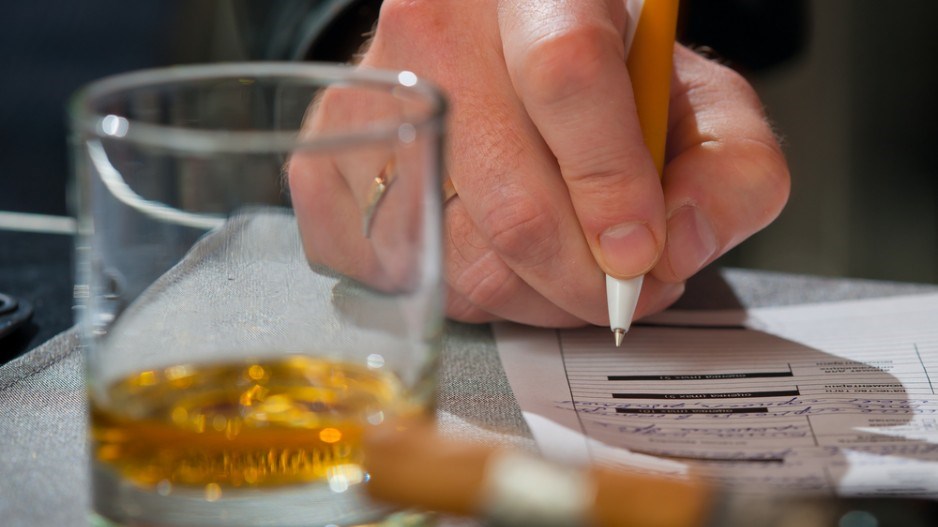Heavily censored B.C. Ministry of Finance documents released this week indicate there was to be a third prong to the Liquor Distribution Branch (LDB) privatization.
A review of the "pricing model" was expected, along with the hiring of a private company to take over warehousing and distribution and the sale of the Vancouver and Kamloops warehouses, assessed at $28.5 million and $5.7 million, respectively.
The privatization was suddenly cancelled when the B.C. Government and Service Employees' Union inked a tentative contract September 27. The warehouses have not been put on the block, despite the government announcing its desire to liquidate surplus real estate to help fight the deficit in February.
The privatization was supposed to happen without negative impact on provincial revenue, but offer "one time savings" on the real estate sale and "ongoing savings" by reducing the cost of distribution.
The government has still not published a business plan to justify the strategy, but an undated consultant's report containing decade-old numbers indicated productivity was poor.
"Cases handled per hour by LDB warehouse employees is low when compared to other jurisdictions," according to Ference Weicker and Company's report Alternative Distribution Options: Liquor Reform Project.
A chart showed B.C. averaged 18.6 cases per warehouse employee hour in 2001-02, versus the average 24.8 in the rest of Canada. B.C.'s volume fell from 19.5 cases per warehouse employee hour in 1999-00. The statistics for individual provinces outside B.C. were censored, but it showed Washington state's 39.5 case number for 2001-2002.
"B.C. is one of the few jurisdictions that does single bottle picking at (distribution centres)," said the report.
The gross $26.4 million expense for distribution included $15.9 million for employment, $4.4 million for freight and fleet and $3.2 million for building costs. It cost another $12 million to handle 3.65 million cases for secondary distribution to private stores and rural stores and licensees via government stores.
A report for Citizens' Services using 2010-11 stats said that warehousing and distribution cost $32 million, or 1.1% of LDB price.
Requests to interview Rich Coleman, deputy premier and the minister responsible for liquor, and new finance minister Mike de Jong were denied.




